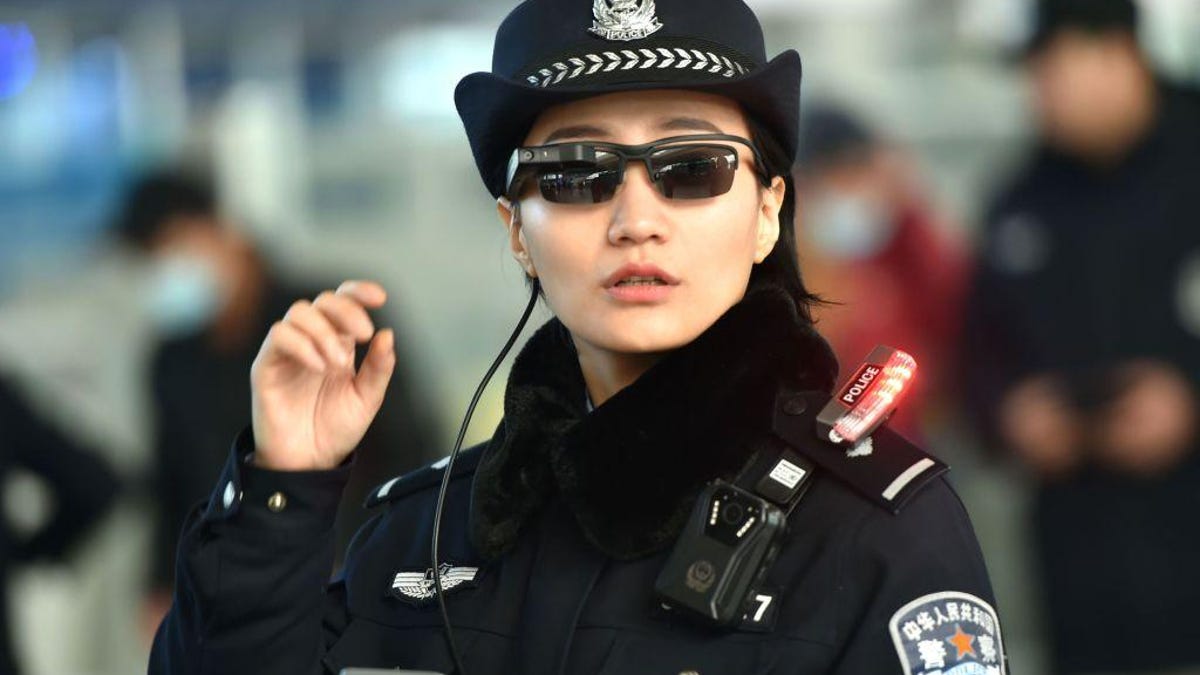Chinese police literally use 'Skynet' surveillance system
Science fiction is fact in China, where police are expanding the use of futuristic sunglasses to keep an eye on the population.
It doesn't link a system of killer robots ticked off at the human race (just yet). But Chinese police are expanding the use of futuristic facial recognition tech powered by a system dubbed "Skynet" to track a database of blacklisted individuals.
Unlike in the "Terminator" franchise where Skynet is controlled by machines to connect genocide-minded bots, this version is a tool for law enforcement and security that's being tested out for added security at two sessions of China's parliament this year, according to Reuters.
The technology is the same we saw Chinese police use last month to monitor travelers leading up to Chinese New Year. Officers wear augmented-reality smartglasses that recognize facial features and license plates in near real time, checking them against a database of suspects.
The AI-powered smart glasses reportedly come from China-based LLVision, which markets smart glasses for a variety of medical and business applications. The specs look an awful lot like the much-derided Google Glass and even goes by the name "Glxss."
Human Rights Watch has issues warning about China's big-data "Police Cloud."
"It is frightening that Chinese authorities are collecting and centralizing ever more information about hundreds of millions of ordinary people, identifying persons who deviate from what they determine to be 'normal thought,' and then surveilling them," said Sophie Richardson, China director at Human Rights Watch.
So just remember that the much-hyped innovations of today could be contributing to the police states of tomorrow. That reminds me: there's a difficult conversation I need to have with my digital friend Alexa.


